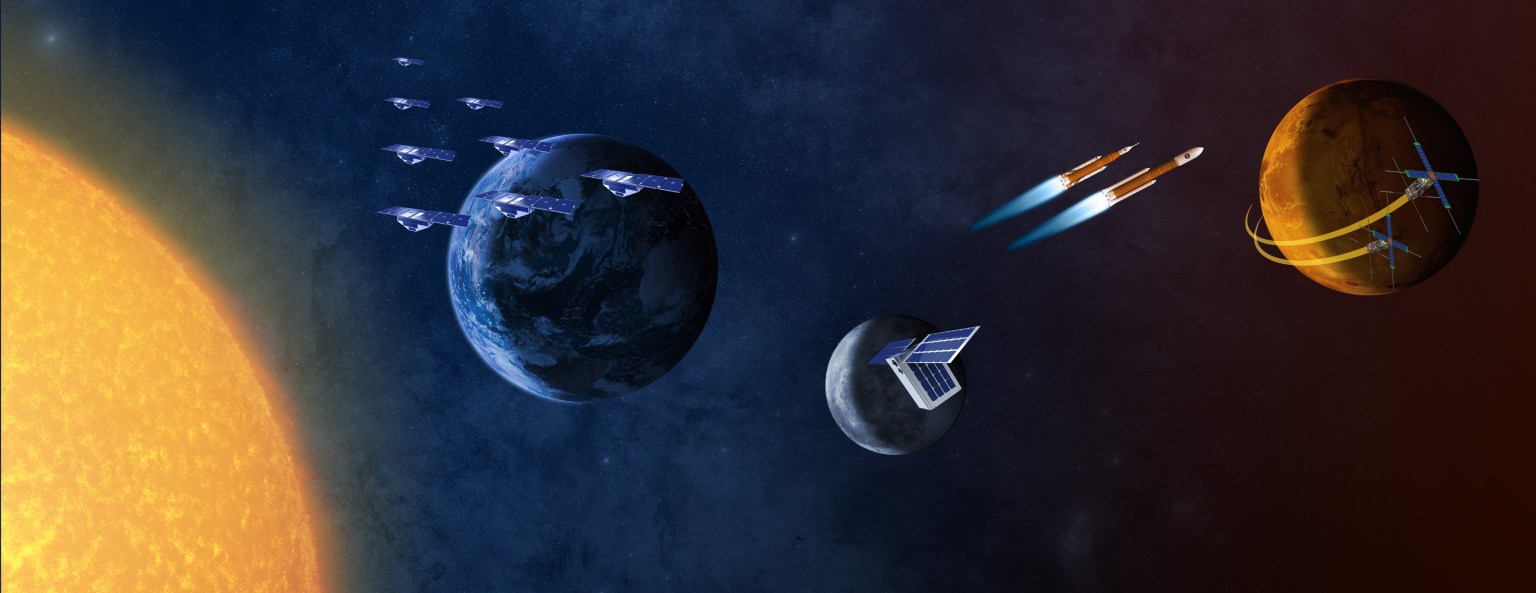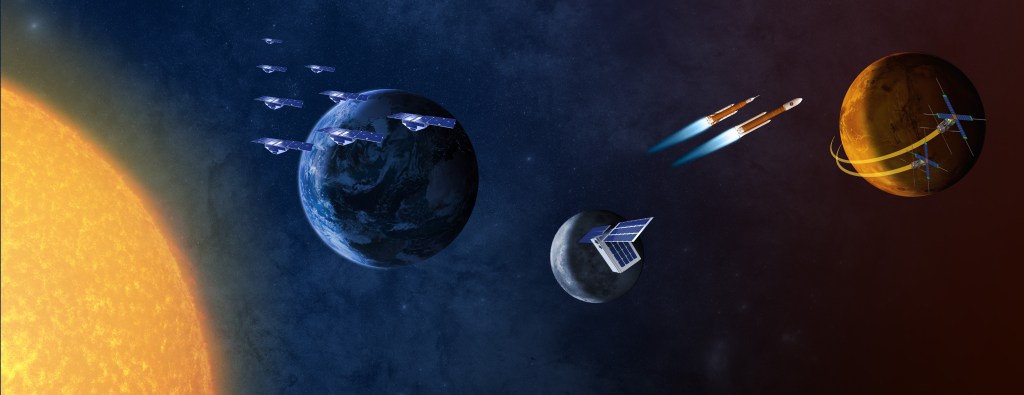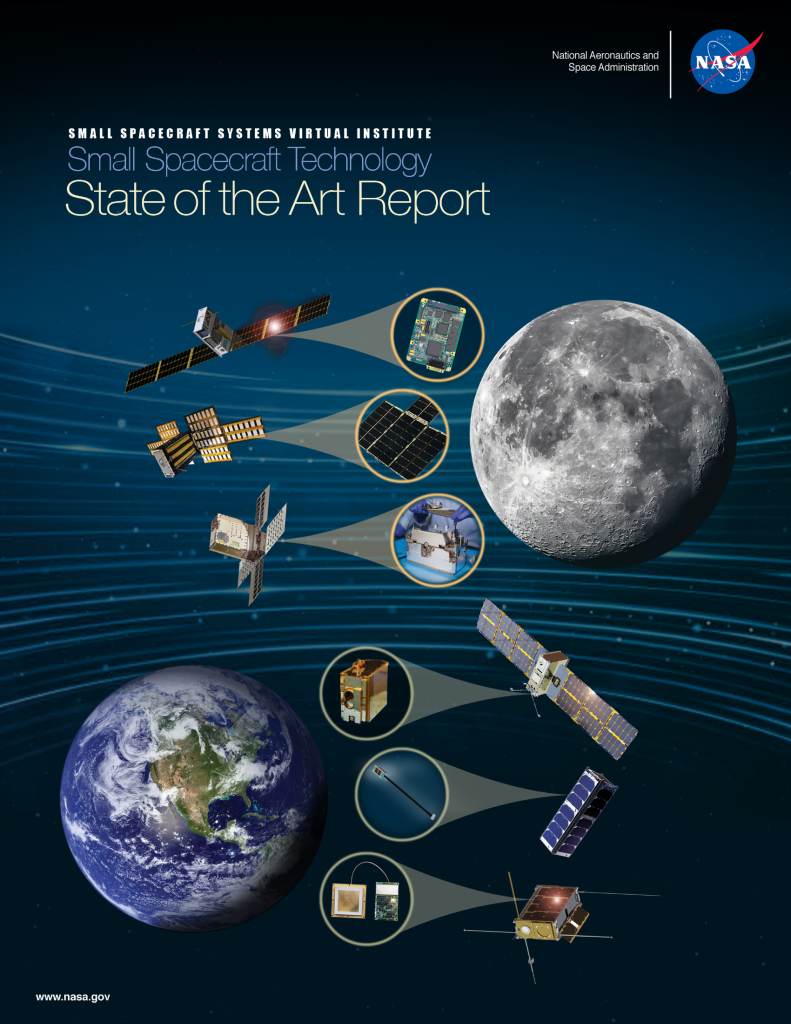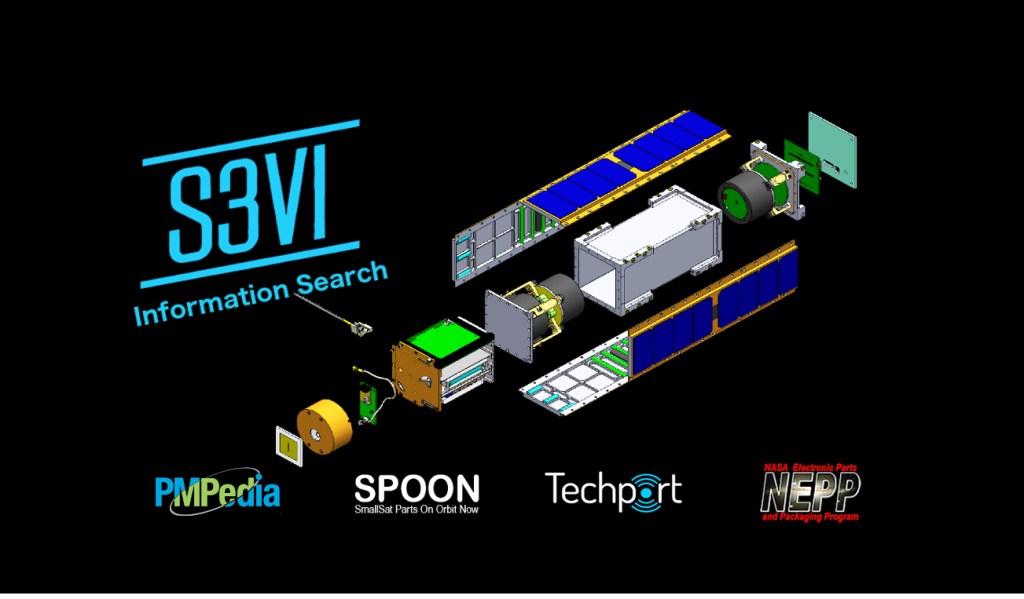Small Spacecraft Community of Practice
Subscribe to receive announcements for the Small Spacecraft Systems Virtual Institute’s (S3VI) monthly webinar series and quarterly newsletter here. We look forward to your participation!

Lessons Learned from the LLITED Mission
Speaker: Rebecca Bishop, The Aerospace Corporation
Wednesday, January 8, 2025
10:00AM-11:00AM Pacific Standard Time
The webinar recording will be posted shortly.
Abstract: The Low-Latitude Ionosphere/Thermosphere Enhancements in Density (LLITED) CubeSat mission completed over a year of on-orbit operations this past fall. The mission consisted of two 1.5U CubeSats, each hosting three science payloads: the University of New Hampshire’s miniature ionization gauge space instrument (MIGSI) to observe neutral density, Embry-Riddles Aeronautical University’s planar ion probe (PIP) to observe plasma density, and Aerospace’s compact total electron content GPS radio occultation sensor (CTECS-A). Various orbit and technical difficulties necessitated a modification and reprioritization of LLITED’s science mission objectives. An emphasis was placed on event-driven observations and combining data from other missions and observational conjunctions for more collaborative studies. This presentation will provide an overview of LLITED’s datasets, describe the various on-going studies, and highlight observations of neutral and plasma density structures at high and mid-latitudes, as well as observations of short time stability of small-scale density structures.
Bio: Rebecca L. Bishop is a Principal Scientist in the Space Science Applications Laboratory at The Aerospace Corporation in El Segundo, CA. At The Aerospace Corporation, Dr. Bishop has led the design, building, and testing of a CubeSat capable GPS Radio Occultation (RO) sensors to measure ionospheric density and scintillation. Dr. Bishop has provided a GPS RO sensor on four CubeSat/Nanosat missions. Additionally, she has been involved with several sounding rocket experiments and International Space Station hosted sensors. Her research interests include mid and low latitude ionospheric dynamics and instabilities, the response of the ionosphere from coupling to the thermosphere, and the reaction of the ionosphere to other regions above and below the ionosphere as well as its influence on those regions. Dr. Bishop explores how the dynamics of the ionosphere impacts operational and civil systems such as GPS navigation and communication systems. One of her areas of interest is to improve communication between the science community and end users in order to better inform users of the potential impacts of the space environment on their technology. Her service to the science community has included membership on the NASA’s Heliophysics Advisory Group (HPAC), NAS’s Community on Solar and Space Physics (CSSP), and PROSWIFT’s Space Weather Advisory Group (SWAG). Dr. Bishop earned her Ph.D. and master’s in physics from the University of Texas at Dallas, and Bachelor of Science degrees in Physics and Mathematics from the University of Idaho. Following graduation, she worked as a Research Associate at Clemson University where she analyzed chemical tracers released from sounding rockets to extract neutral wind altitude profiles in the lower thermosphere.
S3VI encourages the community to submit questions before the webinar to enable more directed responses. Please send questions to craig.d.burkhard@nasa.gov.



























